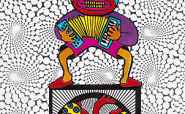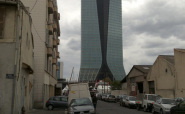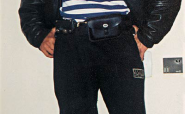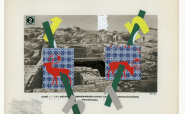|
Рекомендуемые статьи

|
|
There’s 130 kilos of fat, muscles, brain & raw power on the Serbian contemporary art scene, all molded together into a 175-cm tall, 44-year-old body. It’s owner is known by a countless number of different names, including Bamboo, Mexican, Groom, Big Pain in the Ass, but most of all he’s known as MICROBE!… Hero of the losers, fighter for the rights of the dispossessed, folk artist, entertainer…
|

|
|
We’re constantly hearing that someone would like to do some joint project, organize something together, some event, but… damn, how to put it... we really like what you’re doing but it might piss someone off back home. Sure, it’s true that every now and then someone gets kicked out of this institution or that institute for organizing something with Divus, but weren’t they actually terribly self…
|

|
|
There is nothing that has not already been done in culture, squeezed or pulled inside out, blown to dust. Classical culture today is made by scum. Those working in the fine arts who make paintings are called artists. Otherwise in the backwaters and marshlands the rest of the artists are lost in search of new and ever surprising methods. They must be earthbound, casual, political, managerial,…
|

|
|
Nick Land was a British philosopher but is no longer, though he is not dead. The almost neurotic fervor with which he scratched at the scars of reality has seduced more than a few promising academics onto the path of art that offends in its originality. The texts that he has left behind are reliably revolting and boring, and impel us to castrate their categorization as “mere” literature.
|
|





Комментарии
Статья не была прокомментированаДобавить новый комментарий